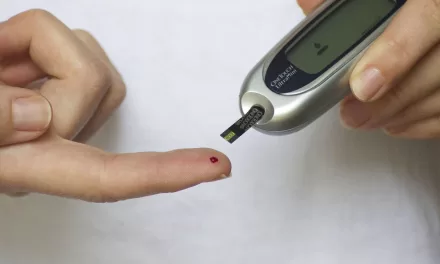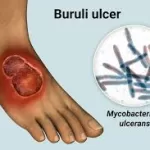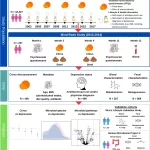BERLIN — A groundbreaking study presented at the European Crohn’s and Colitis Organisation (ECCO) 2025 Congress suggests that an individual’s antibody responses to certain viruses and bacteria could predict the onset of inflammatory bowel disease (IBD) up to a decade before diagnosis. The findings highlight differences in immune responses between Crohn’s disease and ulcerative colitis, offering potential new pathways for early detection and prevention.
Arno R. Bourgonje, MD, PhD, of the Henry D. Janowitz Division of Gastroenterology, Icahn School of Medicine at Mount Sinai, New York City, presented the study, emphasizing that this research is only the “tip of the iceberg.” “High-throughput and high-resolution antibody profiling delineates a previously underappreciated landscape of selective serological responses in inflammatory bowel disease,” Bourgonje said.
A New Approach to IBD Prediction
The study utilized a cutting-edge technology called phage-display immunoprecipitation sequencing (PhIP-Seq) to analyze immune-based biomarker signatures. Researchers examined a longitudinal cohort known as PREDICTS (PRoteomic Evaluation and Discovery in an IBD Cohort of Tri-service Subjects), sourced from the US Department of Defense Serum Repository.
By analyzing serum samples from 200 individuals who developed Crohn’s disease, 200 who developed ulcerative colitis, and 100 matched non-IBD controls, the study identified distinct antibody patterns years before disease onset. The diversity of the antibody repertoire was significantly lower in preclinical Crohn’s disease and ulcerative colitis cases compared to healthy controls, with the most pronounced reduction occurring approximately four years before diagnosis.
Distinct Immune Responses to Viral and Bacterial Antigens
Findings showed that individuals who later developed Crohn’s disease had significantly higher antibody responses to Epstein–Barr virus (EBV), cytomegalovirus (CMV), and herpes simplex virus (HSV)-1 and HSV-2 approximately ten years before diagnosis. Conversely, their responses to Streptococcus bacteria were lower.
For ulcerative colitis, antibody responses to EBV, CMV, HSV-1, and influenza viruses were elevated, while anti-rhinovirus responses were lower. Further analysis demonstrated increasing antibody responses to CMV and EBV proteins over the preclinical phase of Crohn’s disease, while ulcerative colitis was associated with rising autoantibody responses to MAP-kinase-activating death domain proteins.
Potential for Early Diagnosis and Risk Assessment
Although no single antibody response accurately predicted IBD onset, a combination of antibody signatures provided high predictive accuracy, with an area under the receiver operating characteristic curve of 0.90 for Crohn’s disease and 0.84 for ulcerative colitis. These findings suggest that future blood tests incorporating multiple antibody markers could help identify individuals at high risk of developing IBD long before symptoms emerge.
Robin Dart, MD, PhD, a consultant gastroenterologist at Guy’s and St Thomas Hospital, London, commented that these findings could offer insights into disease mechanisms. However, he cautioned that more research is needed, stating, “When you do these kinds of big fishing exercises and identify microbes that may be implicated in IBD, you end up finding more questions than answers, which can only be a good thing.”
Limitations and Future Research
Bourgonje acknowledged that the study cohort was composed entirely of male US Army personnel, limiting its generalizability. Other factors, such as smoking, antibiotic use, and diet, were not controlled, which may have influenced the results.
The study was funded by the Leona M. and Harry B. Helmsley Charitable Trust. Bourgonje and other authors disclosed relationships with pharmaceutical companies including Janssen Pharmaceuticals, Ferring, and AbbVie.
Disclaimer
This article is for informational purposes only and does not constitute medical advice. Readers should consult healthcare professionals for medical concerns or before making any health-related decisions.










